Moving to a new country may be overwhelming, irrespective of whether you are moving for work, school, or a change of scenery.
Therefore, before living in Holland, you ought to consider factors like cost of living, community, education, safety, jobs, and the environment.
Based on Newton‘s third law, ‘every action has an equal opposite reaction,’ living in the Netherlands has its advantages and disadvantages.
Weigh the advantages against the disadvantages, then decide to move to the Netherlands.
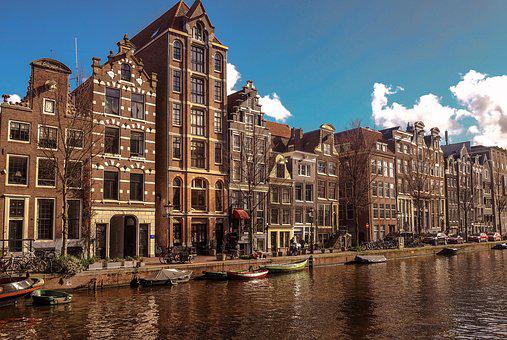
Contents
Pros of Living in the Netherlands
Let’s look into the advantages of moving to the Netherlands:
1. Great Health Education
According to the World Economic Forum, the Netherlands ranks as the third most educated country.
Approximately 81% of adults aged between 25-64 years have completed upper secondary education, and that is higher than the OECD average of 79%.
If you are moving with your children, their education is in safe hands as students acquire knowledge and ability to read and write, research, maths, sciences, economic and social skills.
In addition, the Netherlands education system encourages you to advance your career.
2. A Working Healthcare System
The Netherlands healthcare system is one of the best in the world.
The health care facilities have high standards and skilled staff, indicating your health is covered when you move there.
Health care is offered at both public and private levels.
The public level is under the government, which means primary care is at fixed prices.
Insurance companies also provide health coverage, while children under 18’s are covered by parents’ insurance.
3. Happy and Welcoming Communities
Humans are social beings who require frequent contact and personal relationships.
The Dutch people are friendly and won’t hesitate to engage and welcome you to their country.
A friendly community is helpful when you are dealing with homesickness.
Getting into a circle of friends is not as easy.
However, when a Dutch person lets you into their circle, you appreciate how trustworthy, loyal, loving, and warm they are.
You can make friendships with your neighbors, workmates, or people in the parks and barbecues.
4. State of the Art Transportation System
The Netherlands is not as large, making traveling to different cities easy.
Public transportation is available everywhere, including trains, buses, trams, and metros.
Due to its small size, taking long trips from one point to another is unnecessary.
The Netherlands is relatively flat, making the residents embrace a cycling culture.
If you purchase a bike, you can cycle to your destination as there are separate lanes for cyclists.
In addition, cycling is healthy and eco-friendly.
5. English is Still Applicable
When moving to a new country, the language barrier makes life in the Netherlands much harder.
In the large cities of the Netherlands, like Rotterdam or Amsterdam, most people can converse in English.
You can make it a personal goal to learn Dutch.
However, you can go by even if you do not.
Despite the Netherlands being a non-native English-speaking country, most of its citizens are conversant with the language.
6. Job Availability and Security
The Netherlands accommodates about 50k foreign workers annually.
Approximately 78% of the population aged between 15-64 years are employed, above the OECD average of 66%.
Finding employment in the Netherlands is a task by itself.
However not impossible.
Jobs in the Netherlands are well paying, and the working hours are friendly to prevent burnout.
Some recruitment agencies seek out foreigners, making it easier for you to get a job.
However, under the circumstances where there are no positions for you to fill, the agency notifies you when something opens up.
7. Perfect Climatic Environment
The Netherlands enjoys a typical maritime climate throughout the year, with warm summers and cold winters.
However, due to global warming, climatic changes are unpredictable.
You will enjoy rain showers from April to September and spring and fall from March to May.
The Netherlands is beautiful during the spring season with the blooming daffodils and tulips.
The summer season is from June to August, with significant warmth but not excessive heat.
Winter kicks in from November to March, and the cold, snow, and fog are common during this season.
8. High-Level Safety
Based on the 2021 World’s Safest Country index, the Netherlands ranked as the 21st safest country.
However, safety is not 100% guaranteed anywhere as you may fall victim to petty crimes like pickpocketing.
When moving to a new country, safety is a reasonable concern, especially for families with children and women traveling solo.
The Netherlands is generally safe.
However, you should avoid high-crime areas and take the necessary precautions.
Safety precautions like locking your house when leaving, setting up a burglar alarm, or locking your car.
9. Mouth-Watering Delicacies
Some traditional Dutch dishes you will come across are AVG’tje, pea soup, hutspot, stamppot, pancakes, hachee, brown bean soup, and huzarensalade.
Netherlands cuisine is diverse as it embraces recipes from different parts of the world.
You don’t need to stress about food as the cuisines use common ingredients.
So, whether you like your food spiced, smoked, vegan, fried, or dried, you will get a meal you will enjoy.
In addition, agriculture in the Netherlands provides most of the ingredients in Dutch meals and not forget the cheeses.
Cons of Living in the Netherlands
In the Netherlands, you will face some difficulties.
Let’s discuss some potential challenges you might experience so you can prepare accordingly.
1. High Taxes
The tax rates in the Netherlands are incredibly high as a single worker is taxed at 36.1%.
The Netherlands ranks number 22 among the 38 OECD member countries regarding high taxes.
Income and social security account for 70% of the total tax wedge.
Couples with two children pay a 29.1% tax.
In addition, the government provides children benefits to make life a bit easier for parents.
2. A Sense of Racism
Unfortunately, racism is much alive in the Netherlands.
In 2011 there were 2695 reports of racism or racist motives.
The reports have, however, dropped since to about 1433 reports.
Most racial incidents occur around the largest cities, Rotterdam and Amsterdam.
You will often detect racism during job interviews or social discussions.
3. Housing Crisis
There is an insane housing crisis in the Netherlands.
Hence, it’s crucial to look for a place in advance before moving to live here.
Available apartments are either furnished or unfurnished.
Crazy rent rates accompany the furnished houses.
It may seem like a bargain, but when renting an unfurnished house, you must purchase everything, including carpets and essential appliances.
In addition, landlords take advantage of the housing problem and overcharge their tenants.
4. Periodical Bad Weather
Holland is warm from June to September.
After that, the weather is either rainy or freezing cold.
The temperature drops to the extent you only want to be indoors.
Dutch people are used to the cold weather; some even cycle while it snows.
The weather is unpredictable and the seasons inconsistent, meaning you spend half the year indoors.
In addition, staying indoors that long without company may be lonely and boring.
5. Language Barrier
As much as most Dutch people know, conversational English is not enough.
You will need to learn Dutch as most descriptions, announcements, items, and packages are in Dutch.
When going to places like the supermarket or train stations, you need to use google translate till you learn the language.
6. High Cost of Living
Everything seems expensive in the Netherlands, from rents, food, and shopping to ticket prices.
Tickets on public transportation will cost you more than grocery shopping.
The service industry is pricey as well.
So you may need to learn to do minor repairs yourself to avoid spending too much money on fixing broken things.
Owning a car in the Netherlands will drain your pockets dry.
In addition, you will need to cater for expenses like fueling, servicing, repairs and insurance.
So you might need to rethink driving around in your car.
7. Strict Rules
Dutch people play by the rules. Set rules and regulations are followed to the letter.
Planning and organizing are taken quite seriously because if you are late for a meeting, no matter how casual, you need to alert the necessary persons.
Being spontaneous is not well embraced by the Dutch.
8. Customer Service Upsets
The Dutch customer service will test your level of patience.
The service industry will prove less helpful and even harder to navigate.
Be prepared to receive little assistance from the service industry.
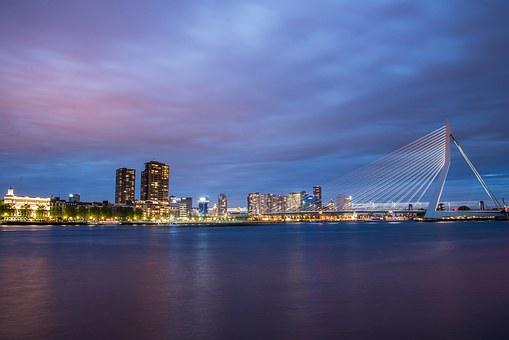
Pros and Cons of Living in The Netherlands – Summary Table
| Pros of Living in The Netherlands | Cons of Living in The Netherlands |
|---|---|
| 1. Great Health Education | 1. High Taxes |
| 2. A Working Healthcare System | 2. A Sense of Racism |
| 3. Happy and Welcoming Communities | 3. Housing Crisis |
| 4. State of the Art Transportation System | 4. Periodical Bad Weather |
| 5. English is Still Applicable | 5. Language Barrier |
| 6. Job Availability and Security | 6. High Cost of Living |
| 7. Perfect Climatic Environment | 7. Strict Rules |
| 8. High-Level Safety | 8. Customer Service Upsets |
| 9. Mouth-Watering Delicacies |
Netherlands Safety Overview
READ THE FULL REPORT: Netherlands Safety Review
Safety Index:
- OVERALL RISK: LOW
- TRANSPORT & TAXIS RISK: LOW
- PICKPOCKETS RISK: LOW
- NATURAL DISASTERS RISK: LOW
- MUGGING RISK: LOW
- TERRORISM RISK: MEDIUM
- SCAMS RISK: LOW
- WOMEN TRAVELERS RISK: LOW
Frequently Asked Questions
Is the Netherlands a country you can consider living in?
Advantages and disadvantages considered, the Netherlands is a great place to live.
If you second-guess your decision to move to the Netherlands, then do not, as you will surely enjoy living here.
The Netherlands ranks in the top 10 in the list of best countries to live and work in.
It is top of countries like the United Kingdom, France, and Germany.
How is life for ex-pats living in the Netherlands?
According to the 2018 HSBC Expat Explorer, ex-pats living in the Netherlands enjoy the great Mediterranean weather, childcare, healthcare, infrastructure, education, and economy.
What are some of the cultural shocks in the Netherlands?
First, everyone has the freedom to practice their religion, be it Hinduism, Islam, Christianity, or Buddhism.
Second, weed is legally sold in places known as coffee shops.
Third, the Netherlands allows same-sex marriages while most countries do not.
Finally, prostitution is legal in the Netherlands, but pimping is illegal.
What are the safest places to live in the Netherlands?
There is an ideal place for everyone in the Netherlands, and most are safe.
For couples, it is best to settle in Utrecht, while solo travelers can enjoy living in Maastricht.
Expats enjoy Leiden, and English speakers fit perfectly in Amsterdam and digital nomads in Eindhoven.
Of course, these places have pros and cons, but the pros outweigh the cons.
What are some beautiful sites to visit while living in the Netherlands?
The Netherlands is a beautiful country with even prettier scenery you should check out.
You should boat ride on the canals of Amsterdam and visit the Garden of Europe to see the ‘bulb belt’ of tulips in Keukenhof.
Visit the Amsterdam national museum and see the antiquities collection from the 1800s.
Not to forget The Hague or the International Court of Justice.
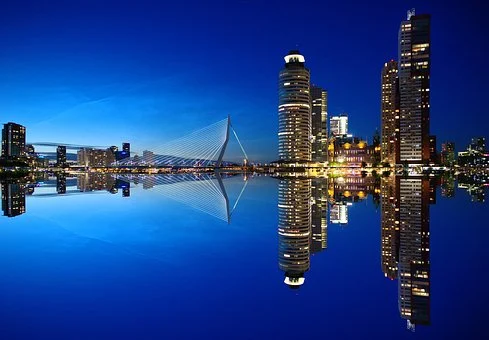
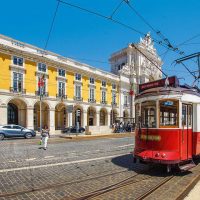
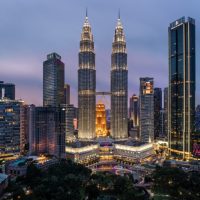
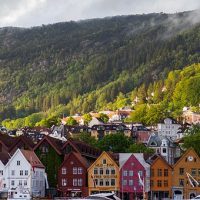
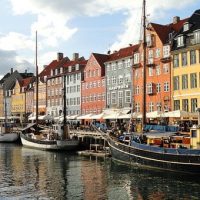

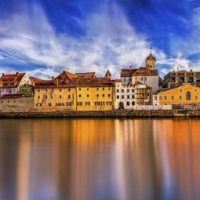





So strange always the weather when in recent years the total amount of rain was 5000 to 6000 milimeter in one year , below the average 7500.
Outside of summer it is neither freezing cold nor rainy all the time.
Check the statistics. According to the 2018 HSBC Expat Explorer, ex-pats living in the Netherlands enjoy the great Mediterranean weather.
This again seems exaggerated. Nobody to check the contradictions in the same article.
Being a career counselor I agree that there is discriminatoir on the job market, but that is not just a white vs black thing.
I have seen bits of it among all groups. It affects those with lowest education most.
The stricter rules as far as being on time at the workplace, not just staying away without asking a day off (25 days per year paid) do affect migrants more.
I have contact with a second generation Dutch Moroccan restaurant owner who prefers Asians in his staff. No young Dutch Moroccan after having some bad experiences.
I can give other examples for other business owners.
Prejudices stick for a long time. Also about the Dutch….
I have hosted 500 times through couchsurfing dot com.
From Chile to China Southern Africa to Iceland.
Yes I like my guests to come at the time we agreed at first.
After that they get my key and can come at any time. Dutch like to be practical and efficient.
Taxes even high cannot be cons as long as they are spend well.
To a very high extent they are.
It is also an honest system high income pay a higher percentage and low income get higher levels of financial assistance for childcare, rent, for the privatized health care insurance.
It is not paradise, but if U do not like the place at 150 K from Amsterdam is Belgium or Germany.
I have traveled, not as in vacationed in 80 countries and lived in Belgium and The USA.
There are few countries where I wish I would be born and raised…or live. My parents I am 70 now had only elementary school education.
Their six children all reached at least Bachelor degrees.
They were born 1924 and 1927. Few countries where this is quite normal.
One day I will visit Netherlands to see lovely country.
There are quite a few things that I would like to comment on. I was raised in Limburg , south of the Netherlands, and since my parents came from the North some 300 km distance between the two provinces. I was disliked and an outcast because I didn’t speak the slang. Every bloody village has a different one. Racism was very prevalent especially Turks, Moroccans and everyone from the Caribbean islands and let’s not forget the Tamils. If you befriended them you’d become an instant outcast, have a relationship with one of them and you’d become a -nationality of the person- whore.
Weather. Mediterranean? Are you serious… it’s cold pretty much 9-10 months of the year and always overcast. I remember that if the temperature outside reached 18C or 20C everyone would run to the swimming pools or – holes, and throw our 6 layered clothing off. Even an occasional shower at that particularly warm and sunny day couldn’t persuade us to race back home in front of the heater. Speaking of, there is a very good reason why every single home in the NL has central heating in every single room , yet not an aircon in sight EVER, it’s cold in that miserable climate.
Yes,The people are distant but honest. If you ask for an opinion you’re going to get one and you might not like it. It’s however, not meant to be malicious it’s just as how they see it. And you are expected to be just as honest. Beating around the bush is not a term the Dutch are familiar with.
Thrifty? They’re known to hand over record making donations to charities especially war torn or starvation affected countries. I could give a list a mile long as how far the Dutch are willing to go to rescue people by donating.
Yes, we are very good with our money and indeed carefully plan as where what and how it gets spend inside the household.
Conservative? We allowed homosexuality since 1897 or abouts there, you can live your life as you want to. It’s progressiveness is what drove me practically away to a far more conservative country.
The police are darling, and friendly I didn’t appreciate them nearly as much as they deserved. If they could work out a solution that keeps you from being ticketed or worse arrested they would. I was absolutely traumatised by the police in this Country to me they’re just crooks with badges and always looking for an excuse to show who is boss. I have absolutely no respect for them and nepotism is rife here within their ‘ blue world’
I would personally never go back to the NL but not because of the people I hate the weather and there is barely a tree left standing and I hate it.
As for languages the Dutch especially south generally speak 3 to 4 languages if we are for some reason in a different speaking culture due to relationships or friendships we will try to learn that too. Not just English…
The Dutch have a high tolerance but if you start to comment on our way of life and the freedom we allow ourselves we get irate and tell you in no uncertain terms “ To Fk off and go back where you come from” .”if it was so much better over there, don’t suck our economy dry and abuse our healthcare system”just fk off. “
Not sure if I went over all of them but my hand is cramped and aI need to walk my dog. Besides I think it’s enough for now, I said what sprang to my mind when I read the article.
I wish everyone a great day.
Thanks for sharing. Very informative. Baie dankie vir die inligting. Word hoogs waardeer. Veral wat die weer aanbetref.
I live in the Amsterdam and the Netherlands’ maritime climate, with its mild summers and cool winters, offers a comfortable living environment. The weather, while it can be a little rainy at times, adds to the country’s unique charm. The low temperatures during winter bring beautiful frosty scenes, while the warmth of the summer allows for outdoor activities and events. However, do bear in mind that weather in the Netherlands can be quite changeable. It’s not uncommon to experience sun, rain, and wind all in one day, especially in coastal areas like Amsterdam. Hence, having a good understanding of the local weather patterns can help you prepare and adapt to the living conditions. Always check for latest weather data on your phone or reputable website. Also, the famously flat landscape of the Netherlands makes the country quite windy, which can be particularly noticeable when biking – a popular mode of transport here.
Racist country, xenophobic, healthcare is a disaster, the direction that the Dutch want for immigrants to take is assimilation not integration, very narcissistic, self righteous culture. Train travel is expensive, trains are often overcrowded. On the surface everything seems nice and right but if you scratch that surface layer it’s horrible.
After living in the Netherlands for 38 years, in retrospect, the Netherlands will always remain racist. I’m white and from London, born 1954, currently living in the Dutch Caribbean and retired, married to a black woman.
Racism stems from the government. Mark Rutte was responsible for the tax office scandal. Yet still running the caretaker govt. After more than two years in the Caribbean, the Dutch tax office tried to make me pay them almost 2,500 euro. I had no debts when I left, they lied.
Reason for their actions, because my surname is not Dutch and I am a dual national.
In 1984, I had been living and working in the Netherlands for 5 years, currently employed by KLM. Immigration called KLM and lied, saying I didn’t work enough hours to qualify as a resident, this of course was nonsense! Because of the threat from immigration, the KLM had to terminate my contract. (At that time I could already speak fluent Dutch.) Immigration refused to renew my residence for the following two years. In 1985 I was studying for a BA in Amsterdam. Again I was threatened by immigration which spoiled my chances for the study and had to stop. There are many more racist events whereby I either missed out on a study or job.
I live on a ‘holiday island’ that boasts ever increasing tourism, which sooner or later will be its downfall. I find the Germans and Americans more friendly and easier to speak with than the Dutch. Of course not all Dutch are arrogant and racist. I reckon that the end of slavery made them bitter, as were the Americans that enacted the KKK one year later after its abolition.
I agree with your comment. I’m glad to have left and have no desire to return.